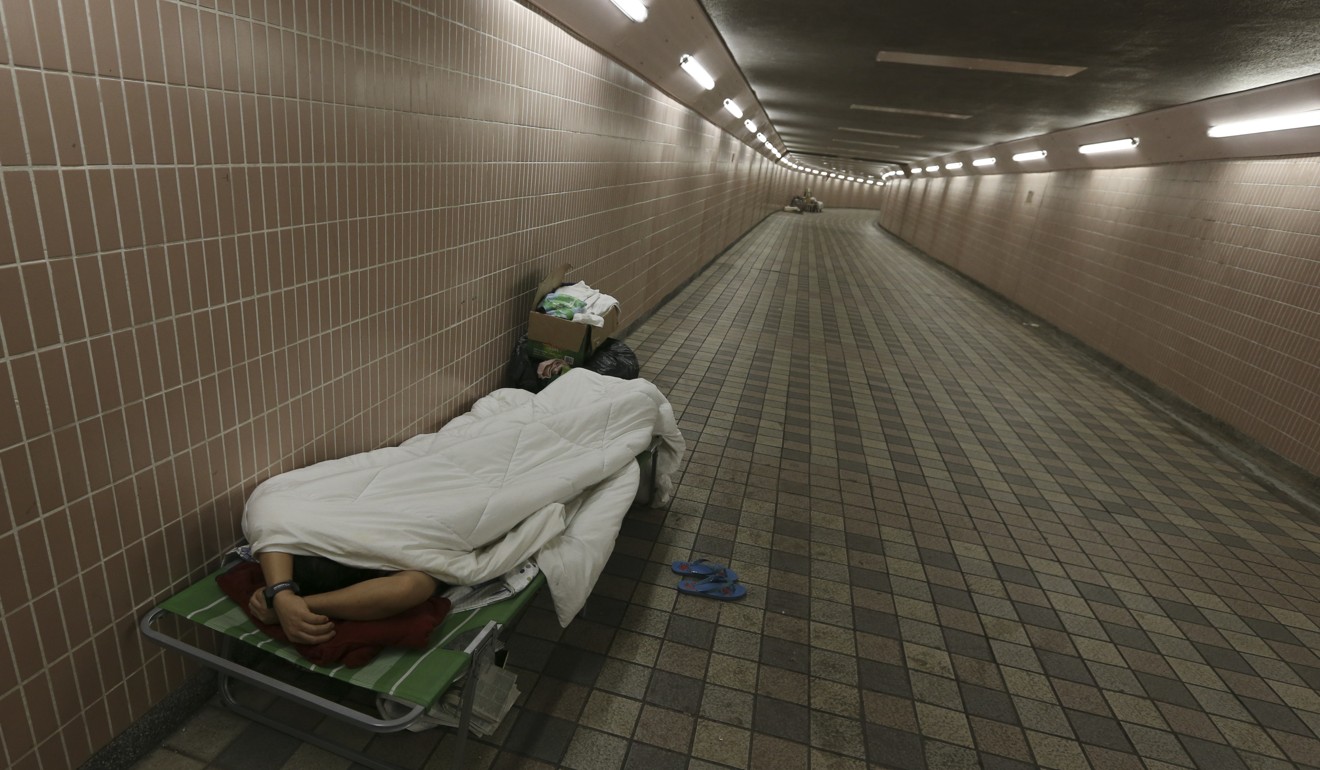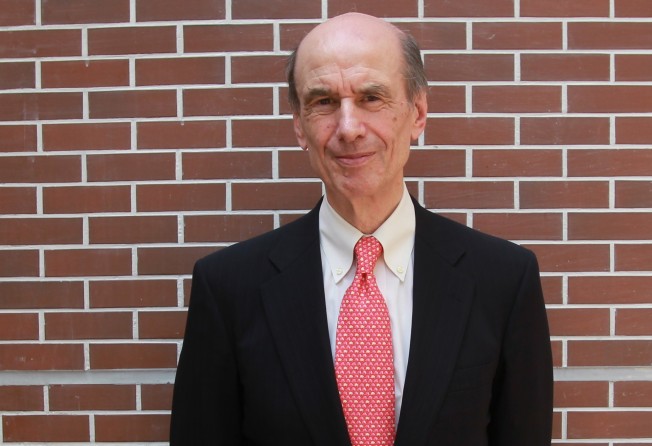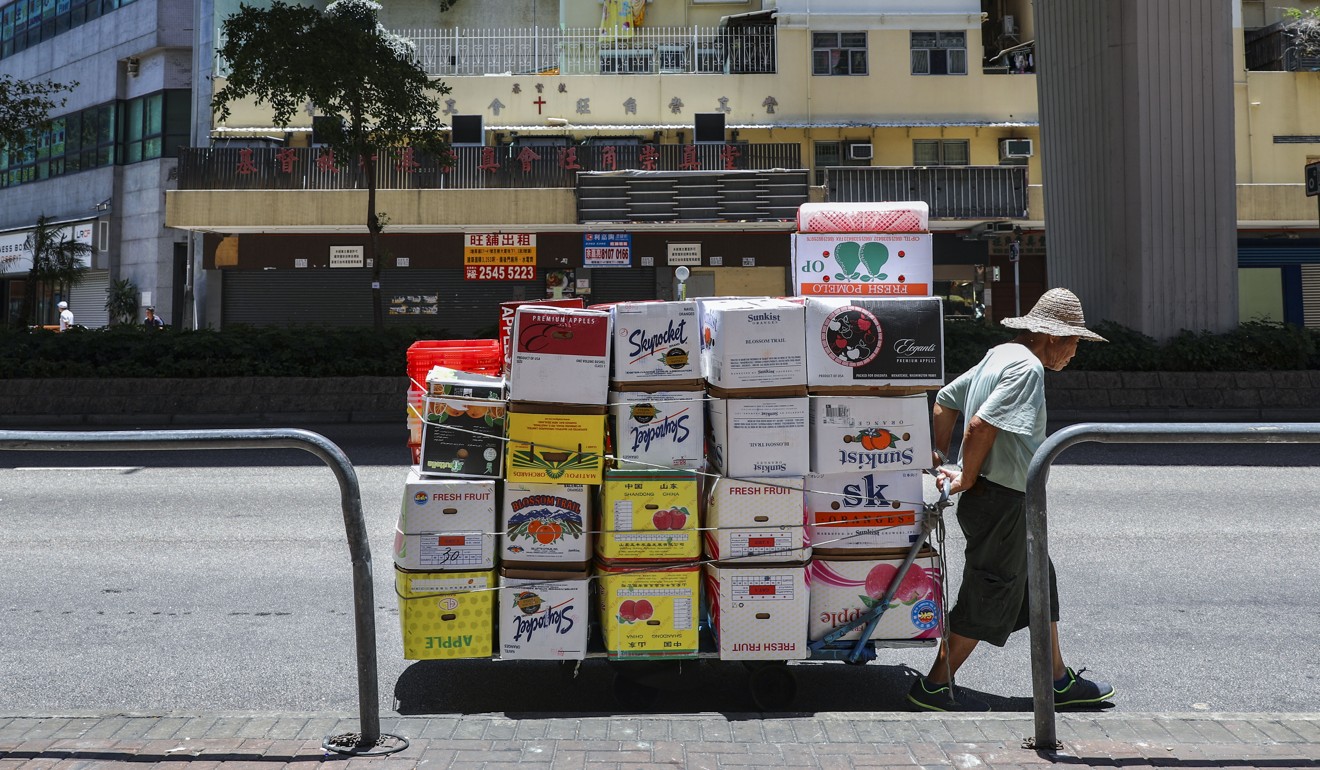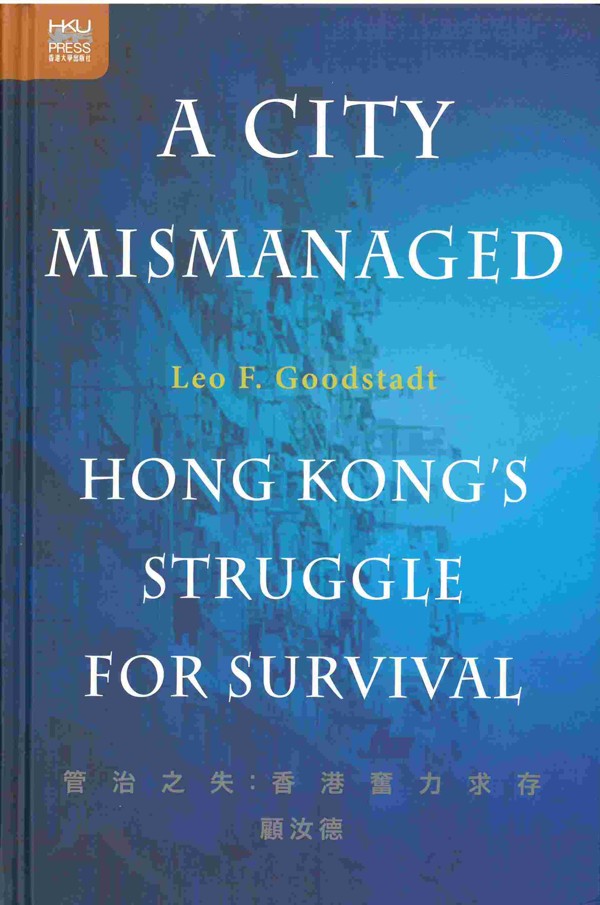
Ex-colonial adviser lashes post-1997 Hong Kong governments for mismanaging, but who could have done better?
Leo Goodstadt points to 20 years of failure on housing, education and ties with mainland China, and says political leaders are incompetent, out of touch, in hock to vested interests and ignore experts ... much like politicians everywhere

A City Mismanaged: Hong Kong’s Struggle for Survival
by Leo F. Goodstadt
Hong Kong University Press
3 stars
A City Mismanaged is policy analysis as blood sport. Leo Goodstadt needs no introduction in Hong Kong circles; those outside might need to know that he was head of the colonial Hong Kong government’s Central Policy Unit from 1989 until 1997, the year Chinese sovereignty was restored. He has penned a no-holds-barred smackdown of the four post-colonial Hong Kong administrations.
The policy failures he focuses on – housing (a subject that Goodstadt has written about before), tertiary education and economic relations with China – should come as no great surprise to anyone who reads the newspapers, but Goodstadt recounts the trajectories in point-by-point detail.
More interesting, perhaps, is Goodstadt’s determination of the underlying causes. First, contrary to certain conventional wisdom, he posits the Basic Law, Hong Kong’s post-1997 mini-constitution, as “an outstanding model of a constitutional statute” and credits it with having “proved highly successful as the blueprint for Hong Kong to preserve its separate identity, its successful economy, its rule of law and its personal freedom”.
The problem, Goodstadt says, is that while “Chief Executives and their ministers have constantly invoked the Basic Law and repeatedly pledged their commitment to it … in practice, they regarded some Articles … as requiring the strictest observance, while others were ignored”.
One of these, he says, is the promise of social welfare. Selective enforcement, he goes on, has been “in direct conflict with the drafters’ intentions” and has “denied the people of Hong Kong important rights clearly conferred by the Law”.

The second cause, he argues, is “the politics of pessimism”. “Chief Executives and their ministers … in common with the business and professional elite, were convinced that financial disaster constantly threatened Hong Kong because of potential demands for more public spending from a discontented community, while economic disaster was only a matter of time as mainland [Chinese] cities modernised,” he writes.
Beijing, meanwhile, has a more robust view of Hong Kong interests, he writes, with “realism at the highest level of the nation’s leadership about Hong Kong’s value and the impossibility of any mainland city replacing it”.
Those who wish to take issue with Goodstadt and his drumbeat of facts, dates, events and quotes will have their work cut out. Nevertheless, while few people would give the Hong Kong government full marks for management, one might still ponder: compared to where?

Goodstadt’s critique of Hong Kong’s political leadership might be summarised as lacking competence, being out of touch, in hock to vested interests and oblivious to expert opinion – ie, that they operate as politicians and aren’t particularly different from politicians elsewhere.
Something else to ponder is Goodstadt’s invocation of the Basic Law. Whatever the Basic Law may say regarding social welfare, Goodstadt doesn’t actually point to many examples where it has played much of a concrete role.
It has provided some cover for administrations to do what they wanted to do anyway; but if the Basic Law really promises social welfare, as Goodstadt claims, then these promises don’t seem to have been particularly enforceable. The hollowing out of government services he documents would appear to be mostly a political rather than a constitutional matter.

“An extraordinary feature of Hong Kong is the way that its constitution, the Basic Law, and its application have become more a matter of financial considerations than legal principles. The government has come to take it for granted that it can refuse the rights of Hong Kong people clearly defined by the Basic Law on no stronger grounds than the advice of economists,” he writes.
Most saliently, perhaps, given that Hong Kong has had four shots at this – Goodstadt finds fault with all four administrations – where would better policies come and from whom? Goodstadt concludes that Beijing has a more robust view of Hong Kong’s possibilities than Hong Kong administrations do.
One can take Goodstadt’s evidence for this with a grain of salt, but if he is right, then it would imply that the main Hong Kong opposition forces may have been barking up the wrong tree.
Still, Goodstadt believes that Hong Kong can weather this, as it has other problems. The Hong Kong people, he says, whether the public or those at the “operation level” of public service, remain resilient.
Asian Review of Books